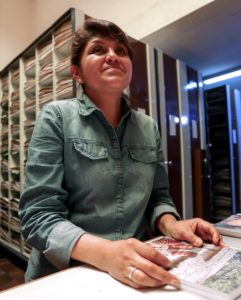
La Paz, Feb 21 (EFE).– For more than two decades, Bolivian biologist Narel Paniagua has devoted her life to studying the use of plants and documenting the knowledge that indigenous people have about botany in this Andean nation, an effort that has earned her international recognition.
Paniagua was honored last week in Washington as one of the five 2019 recipients of the OWSD-Elsevier Foundation Awards for Early-Career Women Scientists in the Developing World.
In an interview with EFE, Paniagua attributed her nomination for the award last year to her ethnobiology mentor, Monica Moraes, who taught her about the love for “understanding and learning the use of plants,” and the importance of traditional knowledge.
The scientist works closely with indigenous communities in Bolivia to understand how they use plants and provide them with tools for resource conservation.
Paniagua documents indigenous peoples’ botanical knowledge in her books and shares her works with them.
“Traditional knowledge is essential, it is not simply the fact of knowing how it is used, but understanding why it’s used and how it’s chosen,” the scientist said.
One of Paniagua’s greatest passions is research into palm trees and her work in this area has transcended borders, allowing her to work with communities in Madagascar and collaborate on research projects on the influence of climate change on the use of plants in the Himalayas and places such as Bhutan.
“This career has allowed me to fulfill many dreams and get to know places that I had never imagined before, so I think this has been the language that has allowed me to communicate with many people, it’s a blessing,” Paniagua said.
One of the important elements of Paniagua’s work is her commitment to providing books to indigenous communities with all the knowledge gathered during her research projects. The books not only recognize the contributions of indigenous herb users but also help preserve their wisdom.
“In the last eight years, we have had to publish at least 10 books, we try to make an effort because resources are always limited and, sadly, publications are very expensive in our country,” she said.
Paniagua’s frustrations, however, quickly turn into satisfaction the moment she delivers the books to her indigenous contributors.
When they see their names and photographs in the books, they “feel valued and start to value their wisdom more,” Paniagua said.
The Bolivian scientist said the OWSD-Elsevier Foundation Award motivated her even more to continue her work and she hoped government institutions would “put more emphasis and interest” on the “excellent” science being done in Bolivia.
Paniagua, moreover, said an effort should be made to help more women become scientists by pursuing an education with the support of their families so they can freely choose what they want to do and overcome prejudice.
